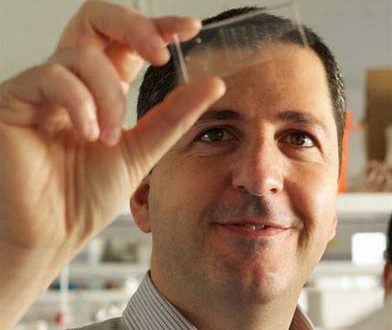“Drug repurposing” is an efficient and cost-saving way to identify new uses for approved or investigational drugs that are outside the scope of the original medical indication. This strategy offers several advantages over developing an entirely new drug for a medical condition, given the drop-out rates in clinical studies of new drugs, the substantial costs and the slow pace of new drug discovery and development.
Repurposing of ‘old’ drugs to treat both common and rare diseases is increasingly becoming an attractive proposition because it involves the use of drugs that have been shown over years to present few risks, and thus they bring potentially lower overall development costs and shorter development timelines.
The SARS-CoV-2 virus has so far infected over 165 million people around the world causing some 3.5 million reported deaths. Recent vaccination efforts have been slowed by multiple coronavirus variants that lower somewhat the efficacy of existing vaccines. While infection generally produces a mild disease, in some patients it can develop into a severe inflammatory COVID-19 requiring medical intervention that can kill.
Prof. Yaakov Nahmias, a Hebrew University of Jerusalem (HUJI) bioengineer and innovator whose breakthroughs ranged from the first 3D printing of cells to human-on-chip technology. And his HUJI team reported that the new coronavirus causes abnormal accumulation of lipids (fats) that are known to initiate severe inflammation in a process called lipotoxicity.
Viruses are efficient metabolic engineers that actively rewire host metabolic pathways to support their lifecycle, presenting attractive metabolic targets for intervention.
Last year, the team identified the lipid-lowering drug TriCor (fenofibrate) as an effective antiviral, showing that it both reduced lung cell damage and blocked virus replication in the laboratory. These results have since been confirmed by several international research teams.
An observational study carried out in multiple clinical centers in Israel was reported last October to support the original findings. The team then launched an interventional clinical study to treat severe COVID-19 patients at Israel’s Barzilai Medical Center in Ashkelon with support from Abbott Laboratories.
Nahmias is the director of HUJI’s Alexander Grass Center for Bioengineering and a visiting professor at Harvard Medical School. He is also the founder and academic director of the Israeli BioDesign medical innovation program. He has a special interest in tracking and controlling metabolic processes that control developmental processes, metabolic disease and drug toxicity.
Now, the HUJI team is reporting promising results of an investigator-initiated interventional open-label clinical study led by Nahmias and coordinated by Prof. Shlomo Ma’ayan, head of tbe infectious disease unit at Barzilai. In this open-label study, 15 severely ill, hospitalized COVID-19 patients with pneumonia requiring oxygen support were treated.
In addition, standard care given to treat COVID-19, the patients were given 145 mg/day of fenofibrate) for 10 days and continuously monitored for disease progression and outcomes.
Their findings were released on Research Square under the title “Metabolic regulation of SARS-CoV-2 infection.”
“The results were astounding,” said Nahmias. “Progressive inflammation markers that are the hallmark of deteriorative COVID-19 dropped within 48 hours of treatment. In addition, 14 of the 15 severe patients didn’t require oxygen support within a week of treatment, while historical records show that the vast majority severe patients treated with the standard of care require lengthy respiratory support,” he added.
Although it was a small clinical study, the team said the results are promising as TriCor was approved by the US Food and Drug Administration back in 1975 for long-term use and has a strong safety record. “There are no silver bullets,” stressed Nahmias, “but fenofibrate is far safer than other drugs proposed to date, and its mechanism of action makes is less likely to be specific to one variant.
“All patients were discharged from the hospital within less than a week after the treatment began and were sent home to complete the 10-day treatment at home, with no drug-related adverse events reported”, noted Maayan. In addition, fewer patients reported COVID-19 side effects during their four-week follow-up appointment. These preliminary findings offer promise to relieve the substantial health burdens experienced by patients who survive the acute phase of COVID-19.
The investigators stressed that while the results were extremely promising, only randomized placebo-controlled studies can serve as basis for clinical decisions. “We entered the second phase of the study and are actively recruiting patients,” explained Nahmias, noting that two Phase 3 studies are already being conducted in running South America, the US, and Israel.
The shortcode is missing a valid Donation Form ID attribute.




